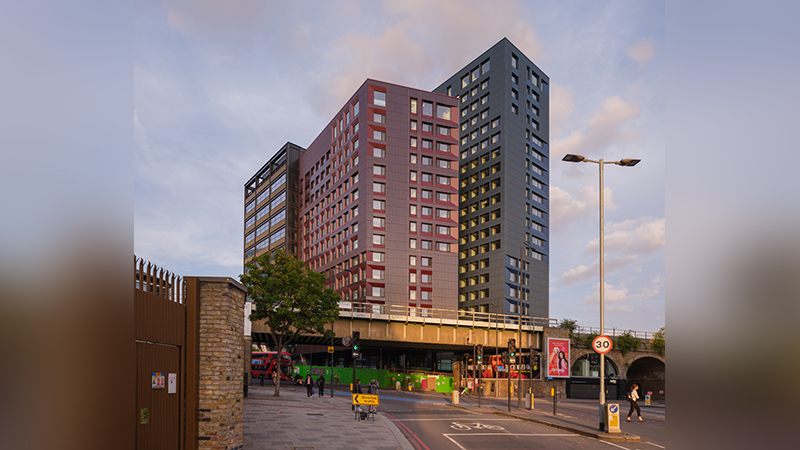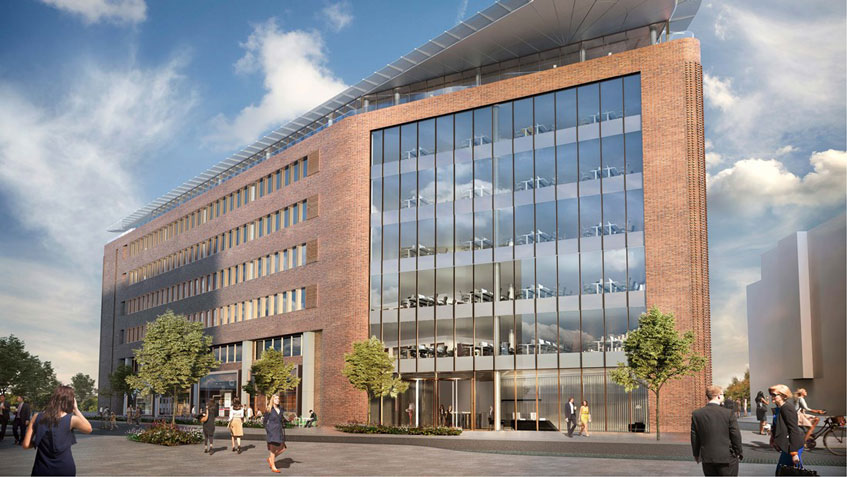Demand for office and lab space in Cambridge has hit its highest level since 2014, as availability tightens.
The team at Bidwells has tracked demand of 1.8m sq ft across the city, following take-up of almost 800,000 sq ft last year. Big requirements have driven the uptick, with demand for lab space of more than 20,000 sq ft increasing sixfold since the end of 2020.
Lab rents are forecast to grow by 5% year-on-year over the coming five years amid growing competition. Bidwells expects prime office rents to break through £50 per sq ft during 2022, and reach £53 per sq ft by the end of the year.
The availability rate, however, stood at just 0.5% at the end of 2021. There is only one speculative new building of more than 50,000 sq ft expected to be delivered this year – the mixed-used One Cambridge Square (pictured), which forms the second phase of Cambridge North scheme led by developer Brookgate Land.
Sue Foxley, research director at Bidwells, said that although some companies will be prepared to wait for new space to be delivered, Cambridge runs the risk of losing some of the rapidly growing companies that need space immediately.
“Start-ups have the series one and two funding, and they’re growing quickly and suddenly come out of an incubator and need 10,000 to 30,000 sq ft,” she said. “There’s very little of it, even for conversion, that’s going to come through immediately – and they need it immediately, otherwise they get behind on their funding. They’re the ones that are probably the most vulnerable.”
Investment in the market stood at £886m in 2021, compared with £221m in the previous 12 months. BioMed Realty’s purchase of two development sites were the largest deal of the year.
Meanwhile, yields have continued to tick lower, with the prime Cambridge lab yield moving below the prime office yield for the first time. Bidwells said the weight of money targeting the sector has continued to drive down yields. Prime office yields in Cambridge fell by 25 basis points over 2021 to 4.25%, and laboratory yields were down by 75 basis points to 3.75%.
Bidwell’s Foxley said the move comes as investors gain confidence in, and knowledge of, the Cambridge life sciences market. Less than a decade ago, she said, before AstraZeneca had moved to the region, there was a perceived risk around the Cambridge labs market, which had yet to become an “institutional product”.
“Now investors can see what a traditional lab building might look like,” said Foxley. “[They understand] the market a bit more and started to feel more comfortable about the life sciences in Cambridge more generally.”
She added: “A lot of that has been driven by overseas international investors which understand the market and have got a lot of experience.”
To send feedback, e-mail evelina.grecenko@eg.co.uk or tweet @gre_eve











